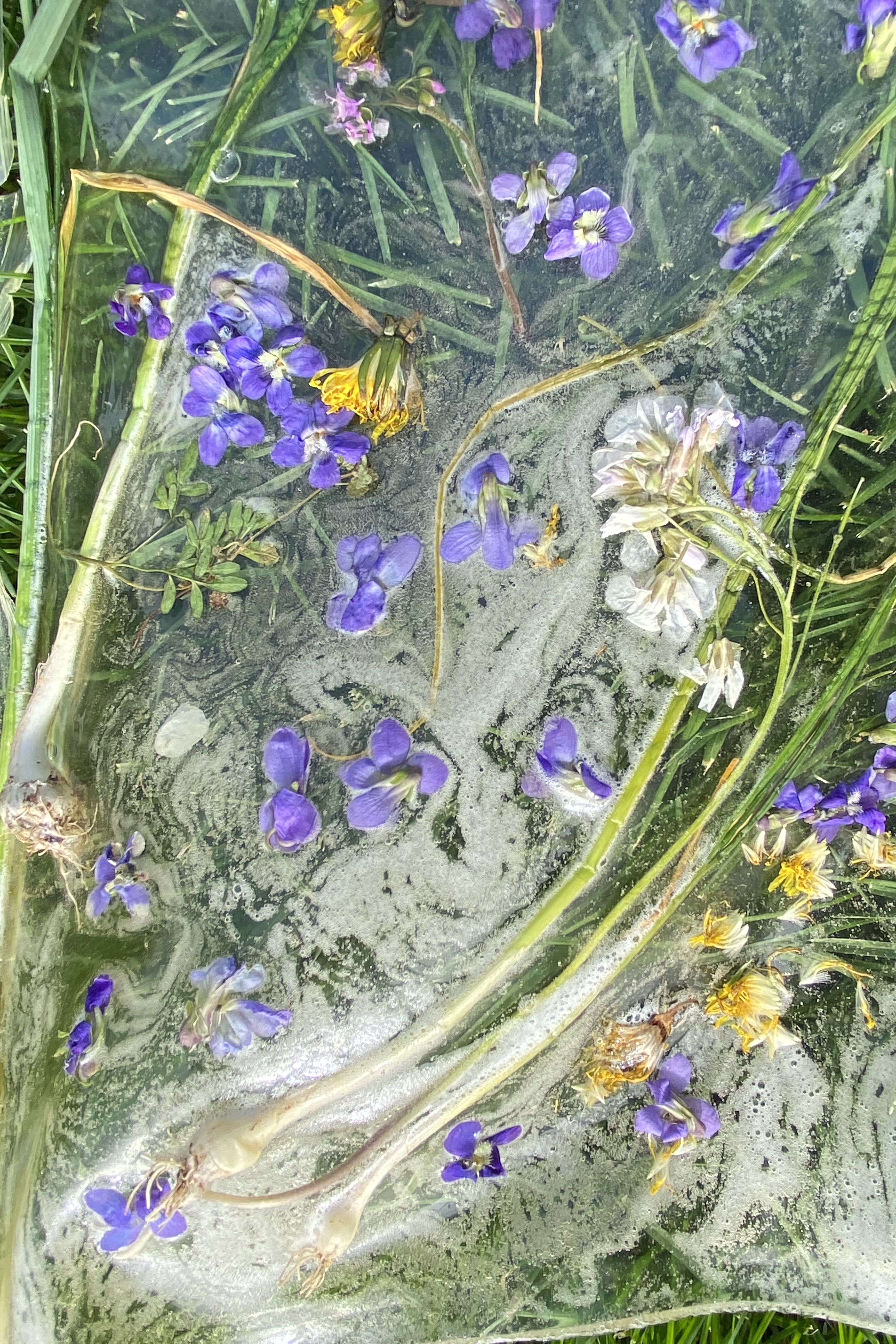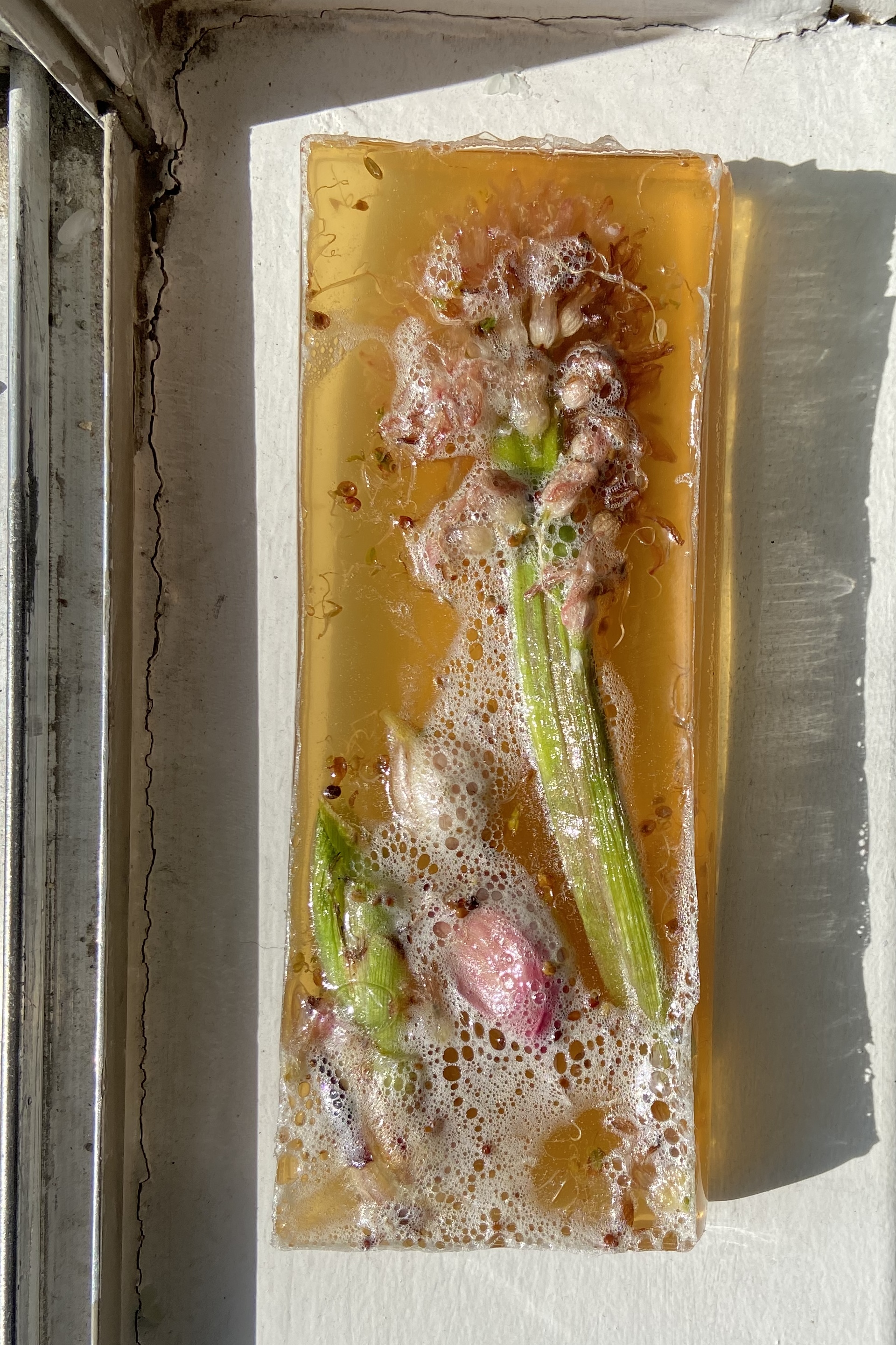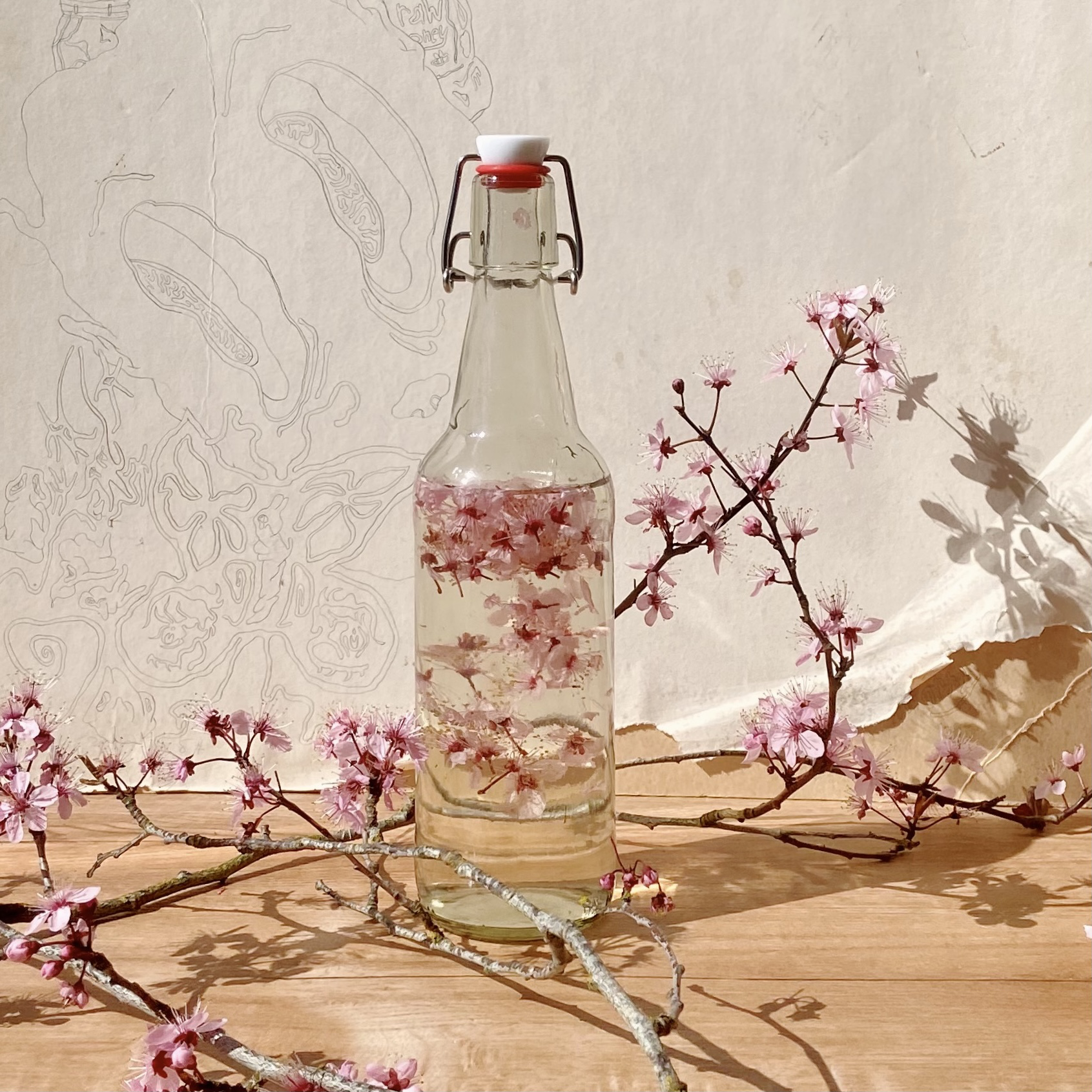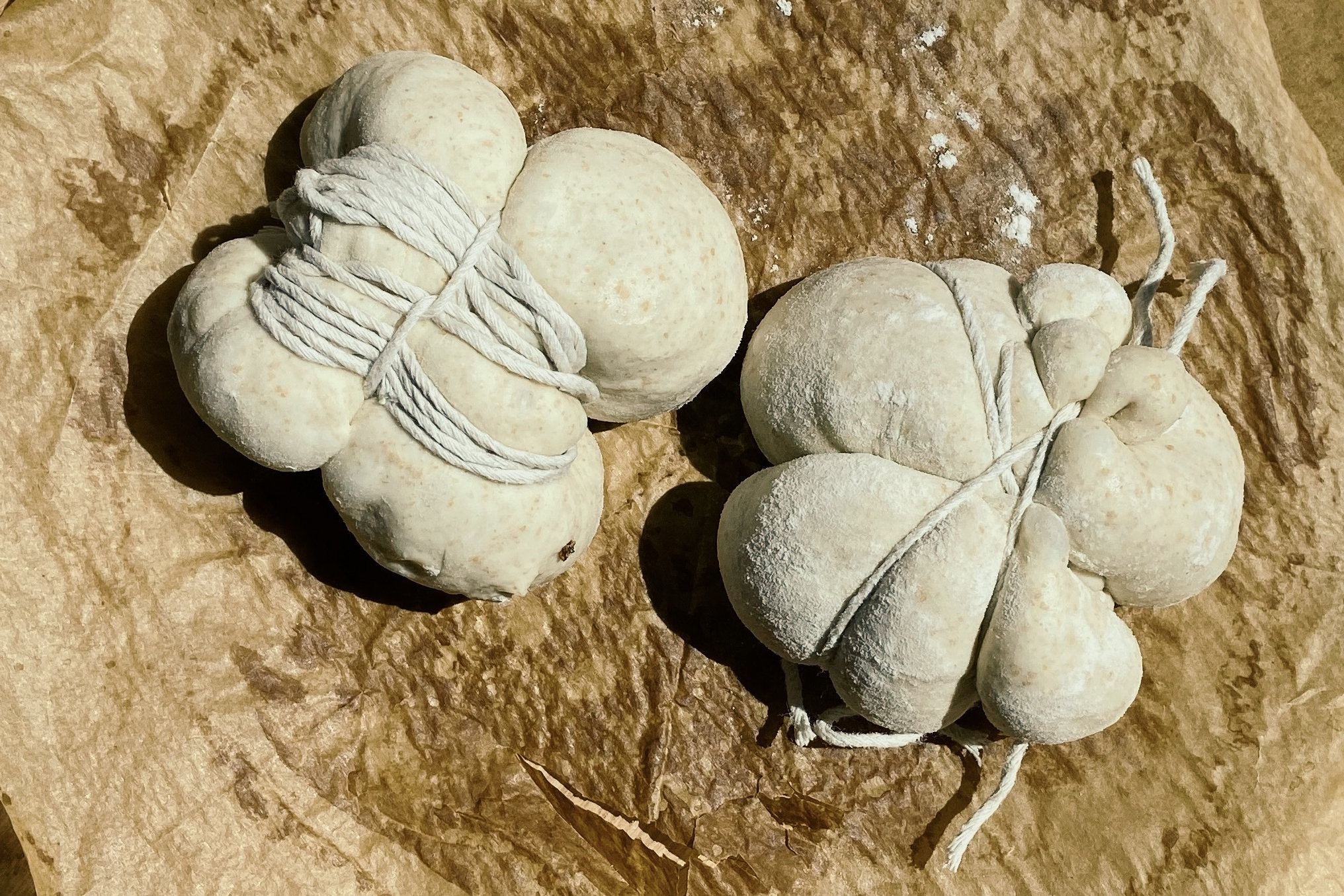03 SLOW LIVING COOKBOOK, 2020-22
CULTIVATING
UPDATED 2.18.2022
Slow Living Cookbook derived from an anonymous essay, “A Call for Complaint: for Plauge Speech, for Sick Speech” in Queer.Archive.Work.’s Urgency Reader 2: Mutual Aid Publishing During Crisis. Evelyn Austin and I responded by prompting our peers for complaint as we navigated our final semester of university, made virtual through school closure during the pandemic. At the time, denoted by color from it’s 17 authors, it documented the overwhelming fatigue and alienation felt in mis-translation from an in-person art studio to online classroom and demonstrated the failure of pedagogy under capitalism during a pandemic.
“The word complaint derives from plague, in a vulgar sense, to strike at the breast. A complaint: sick speech.”
Sara Ahmed, ComplaintThere is a balm, a relief in shared complaint. There is a need to document this complaint. [Sara] Ahmed calls for the complaint to become a collective, “in order to create a shared record or to share experiences,” because “the work of complaint does not stop with a complaint (although it is hard to tell when a complaint stops and starts) in part because when you complain you find out about others who have complained.”
As a way to keep the silence at bay, we log in. The inside of our houses are raucous and cacophonous with the voices of friends, family, colleagues. In the absence of physical spaces, we establish a commons [emphasis author]...We do this precisely because of the call to abandon complaint, to set it aside...We speak to remember. We speak to maintain memory...We speak to remember how we are maintaining as individuals, and to remember what this moment broke open.


Pesticide sprayed edible plants, garlic skins and florist waste suspended in gelatin bioplastic.
The cookbook format was influenced by Tiare Ribeaux’s Bioplastics Cookbook for Ritual Healing from Petrochemical Landscapes. Existing as an open-source ritual in webpage form, Ribeaux’s cookbooks aims to “refigure materials and methods for radically remaking the historically dominant petrochemical derived plastic materials that we use in our everyday lives”. The cookbook ultimately “envision tactics for reclaiming, rebuilding, and healing from the extractive and destructive processes of techno-capitalism” by sharing recipes that prompt a “collective shift in our material relationships”.
Slow Living Cookbook is a collection of material research and reflections on the attempt to make, work and live slowly amidst crisis. Asynchronously written thoughts, tangential comments and recipes converse with one another and in their assemblage, borrowing from Anna Tsing, perform their livability. Our encounter of slow working and living is based in degrowth, referencing Jason Hickel’s theory of radical abundance, Donna Harraway and Anna Tsing’s words on multispecies care and collaboration, Robin Wall Kimmerer and Winona Duke’s Indigenous teachings of gift economies, and the Ojibway legend of the Windigo (a monster who’s hunger grows as it consumes). Slow working is regenerative working. Attempting to move past the catharsis and record-keeping of complaint, we offer a temporary remedy with the potential of sustained remediation.
Excerpts from
Slow Living Cookbook
Meech Boakye:
Plastic is perhaps more a state-change than a substance. It is the sum of millions of years of degraded organisms’ bodies, chemically altered to a state of no return. It is the end of transformation, after death.
Evelyn Austin: Then pipelines cut through the earth and again these substances are dangerously introduced where they cannot mix. Life is bulldozed and scraped, balances of ecosystems disrupted, then leaks and rust lead to contamination of the soil and water.
Then what we see, what we have, what we hold, is the plastics. Relics of violence, of fossils of life now erased, stripped, and homogenized, and re-fossilized synthetically. There are so many voices behind those relics and I want to know their volume.
MB: Now the days are going to differ between environments and seasons but at some point in the process the water should be cloudy (mine was peachy from the light pink flowers), have a pleasant, light floral wine smell and some bubbles. Flowers may also clump and float to the top. Maintaining a warm temperature seems to the difference between sluggish and vigorous life so it seems necessary to keep in a warm place.
EA: The thought first came to me two summers ago while staring at a clear amber sap that had run down the side of a tree and oxidized to form a translucent casing over a sticky glob of thick sap. I was doing some work that summer with polymer resin, and frustrated with how over-processed the substance was; how without break down, unending it is. How presumptuous a material.
Contributing Artist Collin Tatton:...and when I listen close enough I can hear the voice belonging to Mary Sam of Big Cove...I will continue for seven generations more
CT: I started to see patterns through the clay, like how the flat was flanked on the west by a long protecting hill of felsite rock, run-in parallel to the course of the bocabec river, and on the east by a similar ridge which steerage the river from Digdeguash Inlet, was the spot.
To the north of this clay flat, where there is now an open field, the standing forest broke off the winds of winter; and to the south was the sea, where driftwood in abundance was thrown up, and where canoes could be kept. I already knew the tides ride from twenty to twenty five feet at this place; therefore it was well suitable for bivalves and clams. The sands, below the surface, are black with organic matter accumulated by the ocean and decayed over time. Such sand would be an amazing fertilizer paralleled only by the clay itself.
MB: On a burning planet, a full embrace of non-human kin (fungal colonies, lactobacillus, and soil microbes, etc.) as the root, herb and salt of regeneration may be our only strategy for survival. They teach us that reciprocity is the sustaining force of all life. On a burning planet, communal care must begin in the peripheries, extending care to non-human creatures and to beings we may not consider living, providing material mutual aid and keeping each other safe.
EA: I’m trying to come to terms with my feelings of guilt (for not doing everything I could), my fear, and my grief knowing that oil has begun to fill the Line. I’m trying to learn to pray with my feet.
Evelyn Austin: Then pipelines cut through the earth and again these substances are dangerously introduced where they cannot mix. Life is bulldozed and scraped, balances of ecosystems disrupted, then leaks and rust lead to contamination of the soil and water.
Then what we see, what we have, what we hold, is the plastics. Relics of violence, of fossils of life now erased, stripped, and homogenized, and re-fossilized synthetically. There are so many voices behind those relics and I want to know their volume.
MB: Now the days are going to differ between environments and seasons but at some point in the process the water should be cloudy (mine was peachy from the light pink flowers), have a pleasant, light floral wine smell and some bubbles. Flowers may also clump and float to the top. Maintaining a warm temperature seems to the difference between sluggish and vigorous life so it seems necessary to keep in a warm place.
EA: The thought first came to me two summers ago while staring at a clear amber sap that had run down the side of a tree and oxidized to form a translucent casing over a sticky glob of thick sap. I was doing some work that summer with polymer resin, and frustrated with how over-processed the substance was; how without break down, unending it is. How presumptuous a material.
Contributing Artist Collin Tatton:...and when I listen close enough I can hear the voice belonging to Mary Sam of Big Cove...I will continue for seven generations more
CT: I started to see patterns through the clay, like how the flat was flanked on the west by a long protecting hill of felsite rock, run-in parallel to the course of the bocabec river, and on the east by a similar ridge which steerage the river from Digdeguash Inlet, was the spot.
To the north of this clay flat, where there is now an open field, the standing forest broke off the winds of winter; and to the south was the sea, where driftwood in abundance was thrown up, and where canoes could be kept. I already knew the tides ride from twenty to twenty five feet at this place; therefore it was well suitable for bivalves and clams. The sands, below the surface, are black with organic matter accumulated by the ocean and decayed over time. Such sand would be an amazing fertilizer paralleled only by the clay itself.
MB: On a burning planet, a full embrace of non-human kin (fungal colonies, lactobacillus, and soil microbes, etc.) as the root, herb and salt of regeneration may be our only strategy for survival. They teach us that reciprocity is the sustaining force of all life. On a burning planet, communal care must begin in the peripheries, extending care to non-human creatures and to beings we may not consider living, providing material mutual aid and keeping each other safe.
EA: I’m trying to come to terms with my feelings of guilt (for not doing everything I could), my fear, and my grief knowing that oil has begun to fill the Line. I’m trying to learn to pray with my feet.


Prunus blossom yeast water and sloppy bondage bun tests.
Publication
Following the completion of a digital course on The Handmade Web (offered by Megumi Tanaka through Index Space), a front-end development approach to design, html & css and digital gardening, Evelyn and I hand-coded a website with support from Xpace Cultural Center.
“I evoke the term 'handmade web' in order to draw attention to the physical body...I evoke the term 'handmade web' to suggest slowness and smallness as a form of resistance”
J.R. Carpenter via Megumi Tanaka’s Intro To Coding for Designers
Programming & Further Intervention
On April 8th, 2022, Evelyn & I presented an agar and gelatin bioplastics workshop and a Slow Working drop-in hour. Recordings collected from this event contributed to an ongoing sound intervention by Ashley Ona Bott.